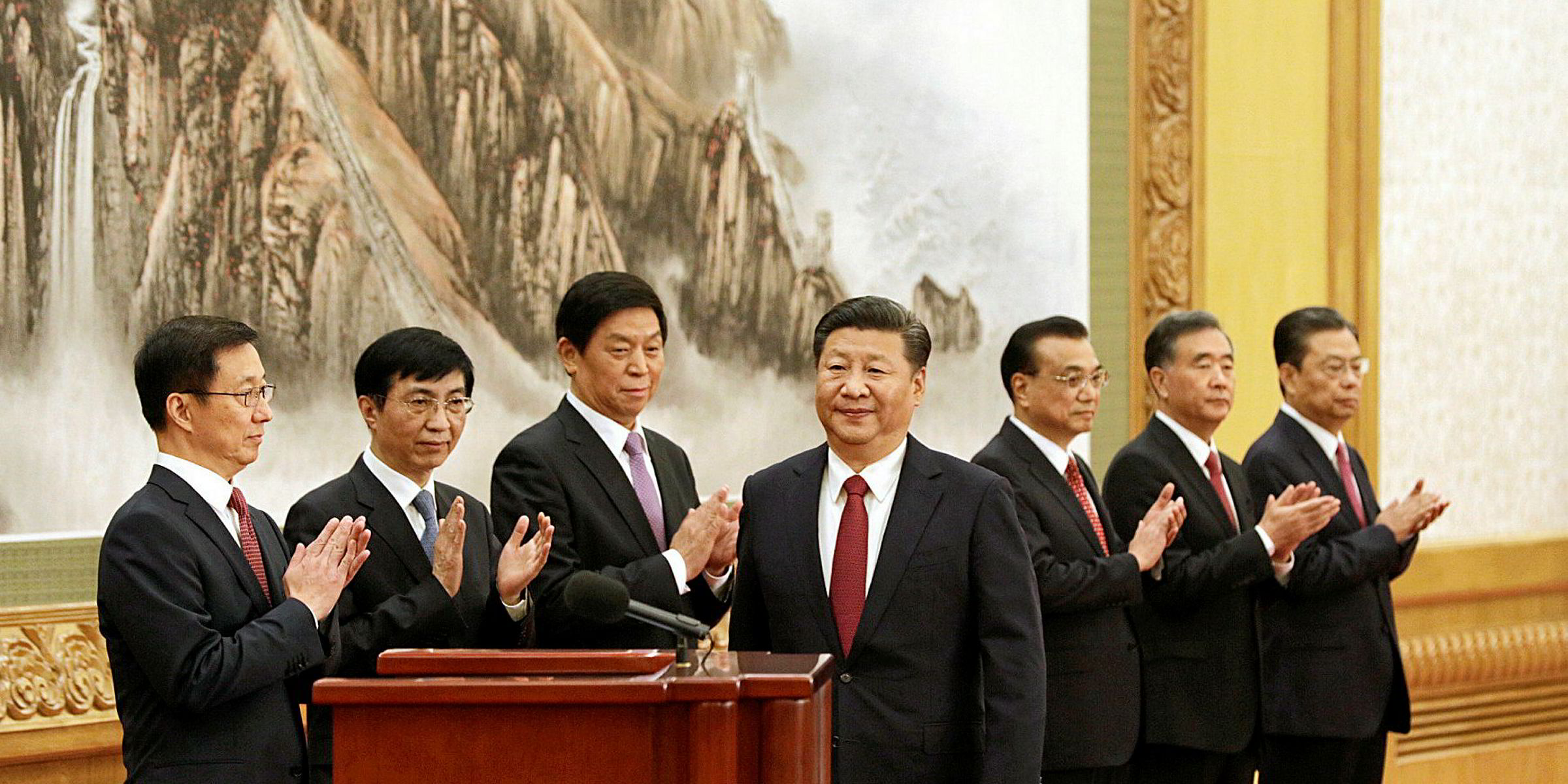When the world’s press beamed images from Beijing’s Great Hall of the People this week as President Xi Jinping tightened his grip on China, the message to the world was clear. Having made huge strides towards its aim of becoming a rich country, it now intends to seek a mantle as a strong nation and assert its power internationally.
China’s dominating influence is nothing new for shipping. For the past three decades, the country’s unprecedented speed of development and industrialisation has been a central driver of maritime markets.
However, strengthening of China’s political and economic power is now set to further increase its leverage over shipping markets, as delegates to TradeWinds Shipping China conference in Shanghai heard this week.
President Xi’s trademark Belt and Road overseas trade agenda, reform of shipbuilding and other heavy industries, and the growing capacity of China’s finance sector are set to place China at the heart of this business in the decade ahead.
The Communist Party congress in Beijing, with its authoritarian choreography, regimented voting and uniformly dressed delegates, was presented as an epoch-defining event for the country.
Not only was Xi reinstalled as president for the next five years as expected, his political credo was given added clout by being blessed as "Xi Jinping Thought". It places him alongside revolutionary leader Mao Zedong and the first major reformer Deng Xiaoping.
While the internal intrigue of Communist Party philosophical argument may hold passing intellectual interest for some in this industry outside of the country, it is the implications for the real world of trade, economic development and finance that are important to comprehend.
Perhaps the most important issue at this moment is what has not happened, rather than what has.
Not only was Xi reinstalled as president for the next five years, his credo was given added clout by being blessed as "Xi Jinping Thought". It places him alongside revolutionary Mao Zedong
China has not suffered the debt-fuelled financial crisis that many Western observers feared was almost inevitable.
If the country had spiralled into an economic meltdown at any point in the last two or three years it would have had potentially catastrophic implications for already battered shipping markets. China appears to be managing its cooling housing market and maintaining stability among indebted state-owned enterprises.
Concern over China’s slowing growth caused by debt problems only tells half the story. While it is indeed true that economic growth last year of 6.7% was its slowest for 26 years, and a similar rate is expected this year, the sheer size of China’s economy means even this slower growth is adding colossal volumes of economic activity.
Consumer economy
In fact, China’s GDP will reach about $12trn this year. The near $1trn growth is equivalent to the whole of the Australian economy, or half the UK. Further, in the past six years Chinese consumer spending has grown by nearly $2.5trn, alone equivalent to the entire Indian economy.
That prompted former Goldman Sachs economist Lord Jim O’Neill to say recently that the Chinese consumer was the most important factor globally for every country and company.

Xi’s Belt and Road initiative is set to further lift trade volumes. Although it started off as a rather half-baked idea in 2013, its evolution is clearly likely to export Chinese growth to new regions.
Along with trade, shipbuilding and its associated finance, other sectors are facing influence from the Xi agenda, with the intention of reducing state direction and increasing private enterprise.
And yet it seems for every reform there is a contradiction. As private shipyards work to raise technical and manufacturing standards they appear blocked from adequate state bank support, while their rivals, the dominant state-owned yards, adapt only slowly.
Chinese financial leasing houses have picked up a significant share of the market, but there remains the clear suggestion of the state’s guiding hand behind the choice of many projects the institutions choose to fund.
These are just two examples of where Xi's economic reform agenda of the past five years has failed to make a significant impact. Much depends on whether that agenda will show results in the next five years.
As for the long-anticipated rise of a new generation of powerful private Chinese shipowners, there are few signs of such a shift yet, despite the emergence of many smaller players. Clearly, the not-so-hidden hand of central state control will remain an all too powerful factor for the foreseeable future.



